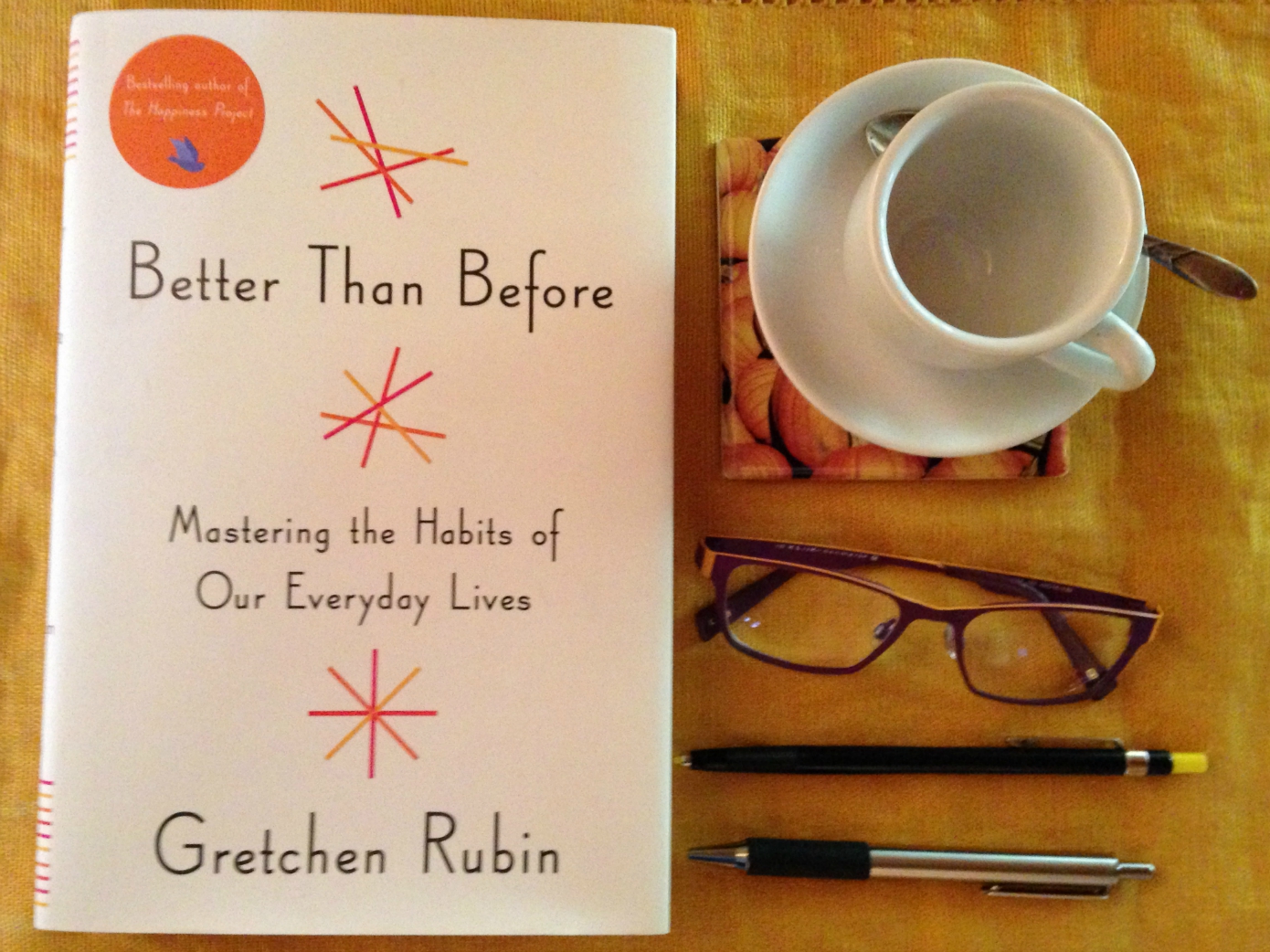 September — Is it the new January? It’s possible. Your desire to start fresh, start over or simply begin a new habit or routine could be the best time for you to do so. As a home educator for 18 years, I found September was my “New Year.” It was my month of setting new routines, practices and starting afresh. Unfortunately, many of those new habits never stuck and most of the time were just temporary adjustments. I have often wondered why I can’t seem to make my habits permanent practices. Until I picked up a copy of Gretchen Rubin’s Better Than Before: Mastering the Habits of Our Everyday Lives. First, I listened to it on Audible. Then I decided Rubin had some useful ideas for my personal life and nutritional practice, so I bought a hard copy. I have to admit that I love my print books.
September — Is it the new January? It’s possible. Your desire to start fresh, start over or simply begin a new habit or routine could be the best time for you to do so. As a home educator for 18 years, I found September was my “New Year.” It was my month of setting new routines, practices and starting afresh. Unfortunately, many of those new habits never stuck and most of the time were just temporary adjustments. I have often wondered why I can’t seem to make my habits permanent practices. Until I picked up a copy of Gretchen Rubin’s Better Than Before: Mastering the Habits of Our Everyday Lives. First, I listened to it on Audible. Then I decided Rubin had some useful ideas for my personal life and nutritional practice, so I bought a hard copy. I have to admit that I love my print books.
In the opening chapters, Rubin introduces the four tendencies that helped me to analyze elements of my nature that I’m hardwired with. Each tendency stems from how you meet expectations — internal, external, both or neither. I clearly fell into the “Obliger” tendency — I seek to meet external expectations and ignore or resist my inner expectations.
Want to know what your tendency is? After all, self-knowledge is empowering. Take Gretchen Rubin’s quiz here.
The other three tendencies are “Upholder,” “Rebel,” and “Questioner.” Upholders desire to meet both internal and external expectations. Questioners meet inner expectations but resist external expectations. And finally, rebels resist meeting neither inner or external expectations. The majority of individuals fall into the categories of obligers or questions with upholders and rebels being in the minority. According to Rubin, “Our Tendency colors the way we see the world and therefore has enormous consequences for our habit.” [18]
Distinctions make you unique and help to provide further clarity to understanding yourself and how you operate in your world. Rubin points out the saying, “I’m unique, just like everyone else.” [221] Recognizing my distinctiveness allowed me to further understand myself —
- marathoner, sprinter or procrastinator? Procrastinator
- underbuyer or overbuyer? Overbuyer
- simplicity-lover or abundance-lover? A little of both — I’ll need to investigate this further.
- finisher or opener? Definitely an opener.
- familiarity-lover or novelty-lover? Most of the time, I’m a familiarity-lover.
- promotion-focused or prevention-focused? Promotion-focused, for sure.
- small steps or big steps? I’m an “all-in” person, so big steps.
Tweetable: My differences are important for establishing habits.
Rubin goes on to explore the four main pillars that help you to change your habits — monitoring, foundation, scheduling, and accountability. With the self-knowledge discovered about my tendency, I was able to analyze which strategy would work best for me. Of course, the strategies build upon one another too. It didn’t take long for me to realize that as an obliger, I must have accountability outside of myself to change my habit(s). For me, I find monitoring onerous, and unless I have to show someone, not worth doing. However, I also realize that I need monitoring, so I can see my successes and my areas needing more work to change.
Rubin suggests that “foundations” are the habits that “boost feelings of self-control, and in this way strengthen the Foundation of all habits.” [59] Can you guess what those obvious habits might be?
- eat and drink right
- sleep
- move
- unclutter (I like the word declutter better)
Over the next couple of weeks, I will reflect on my progress in developing my Foundation habits of each one.
Of course, habits don’t just happen. Rubin explains that we want to make our lives easier and more pleasant as we create and execute good habits. Unfortunately, our aims often clash with our desires, excuses, and justifications.
- “The Strategies of Abstaining, Convenience, and Inconvenience examine how we can shape our habits” by altering the amount of effort expended. [133]
- “Safeguards, Loophole-Spotting, and Distraction address the challenges of failure and temptation.
- Reward, Treats, and Pairing focus on exploiting pleasure to strengthen good habits.” [133]
The book finishes with three strategies for understanding yourself by considering how you see yourself compared to others. This section helped me to highlight my individual values, interests, and disposition.
With this new outlook on my character and how it fits into making habit changes permanent practices, I am ready to dig deeper and apply what I’ve read. As I work through this process, I will share my successes and challenges in future blog posts.
Check out this fun look at Better Than Before in 21 Sentences.
Have you decided that you want to tackle the Foundation of “eating and drinking right”? Then don’t hesitate — start now! How? Call [403.801.5698] or email Brenda to schedule your no-obligation FREE discovery chat. Together, we can explore how you can make your decision to change a reality.